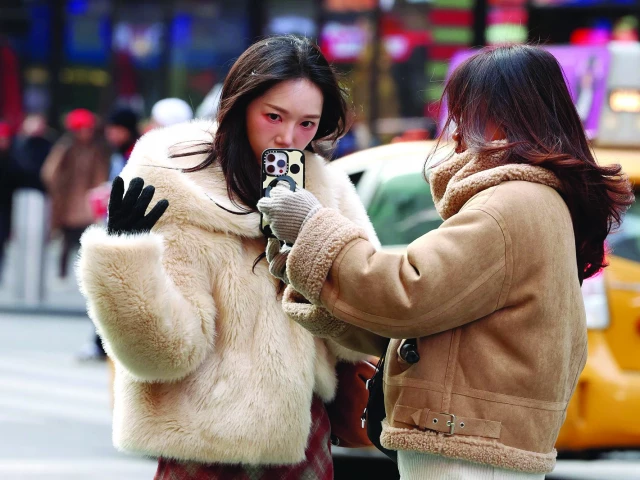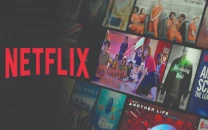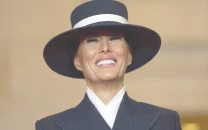TikTok returns, US relieved
Questions linger about the future of the app

On Saturday night, for the first time in five years, millions of American TikTok users who logged on for a late-night scroll were met with an unwelcome notice that their beloved app had been banned and shut down.
Their exile lasted less than 24 hours, ending when the Chinese-owned company restored service on Sunday after President-elect Donald Trump, who returned to power on Monday, said he would revive US access. But the TikTok masses had already started contemplating life without the app that has captivated nearly half of all Americans.
As users returned, some cringed at sappy goodbyes posted before the shutdown or thanked Trump on social media site X, while others wondered whether the TikTok world would ever be the same again.
"We're back but at what cost?" one user mused on the platform.
Trump's action to save TikTok, owned by ByteDance, represents a reversal from his first term in office. In 2020, he aimed to ban the short-video app over concerns the company could share Americans' personal info with the Chinese government.
More recently, Trump has said he has "a warm spot in my heart for TikTok," crediting the app with helping him win over young voters in the 2024 election. TikTok stopped working for US users late on Saturday before a law shutting it down on national security grounds took effect on Sunday.
Trump said he would "extend the period of time before the law's prohibitions take effect, so that we can make a deal to protect our national security."
"I would like the United States to have a 50 per cent ownership position in a joint venture," he wrote on his Truth Social platform.
Don't go changing
Though relieved, some users wonder if such a change to the company's ownership structure would ultimately alter the TikTok experience.
"I think back to when Elon bought Twitter and how dramatically it shifted overall sentiment and how people interacted on the app. So that gives me a lot of concern," said Kelly Sites, 38, referring to billionaire Elon Musk's purchase of the social media site now known as X.
"I don't want the magic of the algorithm to change," said Sites, a part-time content creator based in Kansas City, Kansas.
The algorithms TikTok relies on for its operations are deemed core to the overall operations of ByteDance, which would make a sale of the app with algorithms highly unlikely, Reuters reported in April.
While questions linger about the future of TikTok, some users - particularly those who earn a living from it - lament their trust in the government will never be the same.
"I think that this is a very sad time in history," said Richard "Chuck" Fasulo, 37, a mechanic and auto-influencer from Duchess County, New York.
Fasulo told Reuters that the app helped him dig his way out of debt, more than double his income and take his family on vacation for the first time last summer. Confronting the spectre of losing the business opportunities that the app provided him was not a pleasant experience.
"I think that myself, like many others, have gained a lot of disdain for the US government," said Fasulo, who has about 400,000 followers.
For others, however, relief is the important thing, no matter its source. "I would choose a political stunt over losing TikTok forever," Charlotte Warren, 31, a dating and relationships content creator based in Austin, Texas, told Reuters.
Without TikTok, she said she could lose up to $60,000 in annual income, over 200,000 followers and was unsure if she would continue posting content to other platforms.
"I just wanted my app back." Reuters



















COMMENTS
Comments are moderated and generally will be posted if they are on-topic and not abusive.
For more information, please see our Comments FAQ